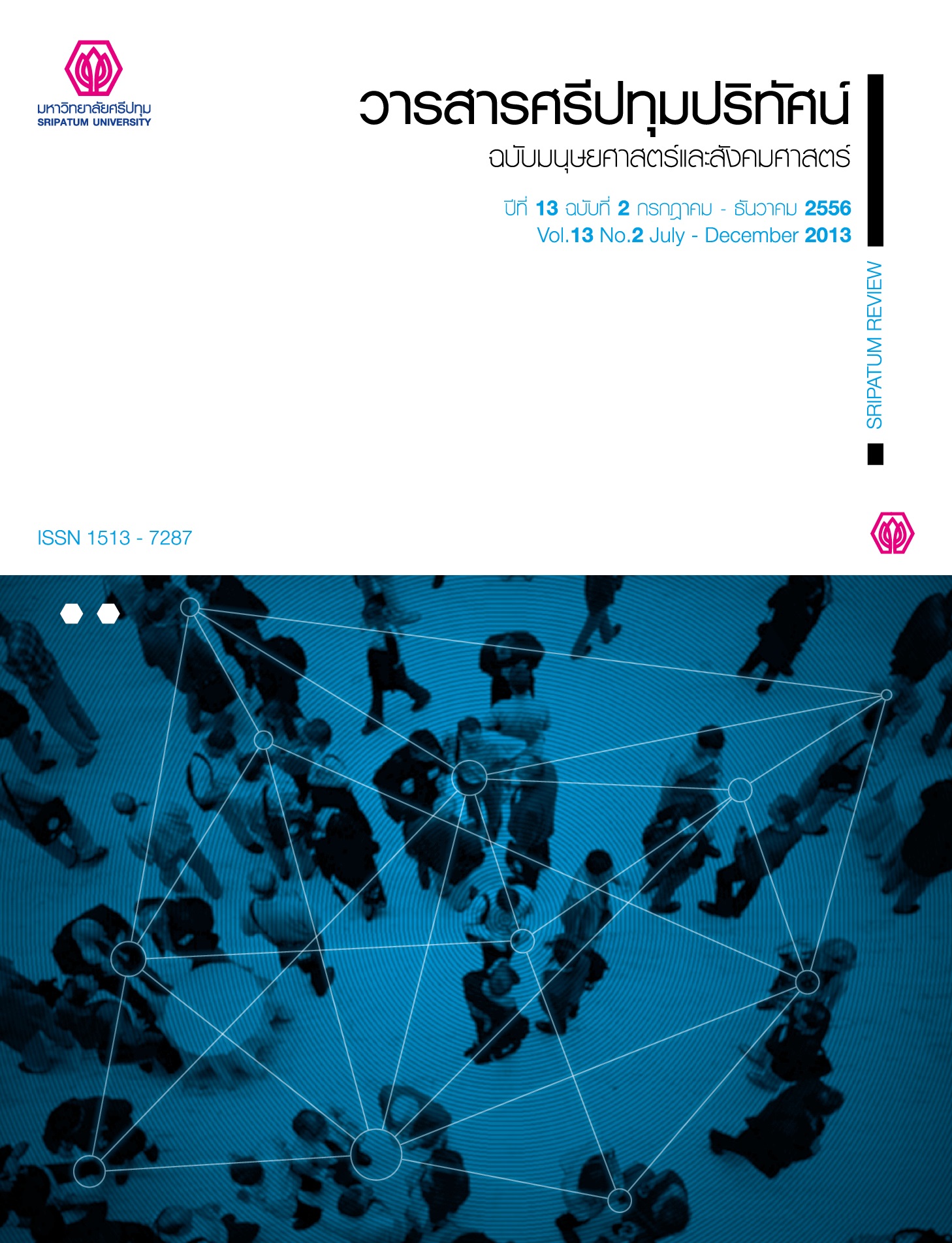METACOGNITIVE READING STRATEGIES TO IMPROVE READING COMPREHENSION AND PERFORMANCE
Main Article Content
Abstract
The purposes of this study were 1) to determine the differences in awareness of metacognitive reading strategies used before and after the strategy instruction; 2) to investigate the effectiveness of using metacognitive reading strategies on students’ reading comprehension; and 3) to examine the effects of metacognitive reading strategy instruction on students’ reading performance. It was hypothesized that instruction using metacognitive reading strategies helped improve the students’ reading comprehension and reading performance as students could use the strategies as a tool not only to motivate them to read but also to facilitate their reading.
Data were collected by questionnaires, conversational interviews, and a focus group discussion and then analyzed using descriptive statistics and content analysis. Research findings could be concluded that 1) the students’ post-experiment metacognitive reading awareness was significantly higher than their pre-experiment counterpart at the .01 level; and 2) metacognitive reading strategies enabled the students to better understand the reading text, as measured by their post-reading notes, and they also enabled students to improve their reading performance.
Article Details
1. กองบรรณาธิการสงวนสิทธิ์ในการพิจารณาและตัดสินการตีพิมพ์บทความในวารสาร
2. บทความทุกเรื่องจะได้รับการตรวจสอบทางวิชาการโดยผู้ทรงคุณวุฒิ แต่ข้อความและเนื้อหาในบทความที่ตีพิมพ์เป็นความรับผิดชอบของผู้เขียนแต่เพียงผู้เดียว มิใช่ความคิดเห็นและความรับผิดชอบของมหาวิทยาลัยศรีปทุม
3. การคัดลอกอ้างอิงต้องดำเนินการตามการปฏิบัติในหมู่นักวิชาการโดยทั่วไป และสอดคล้องกับกฎหมายที่เกี่ยวข้อง
References
Baker, A. (2002). Metacognition in comprehension instruction. In Block, C. & Pressley, M. (2002). Comprehension instruction: Research based best practice 77-95. N.Y.: Guilford.
Baker, L. & Brown, A. (1984). Metacognitive skills and reading. In P.D. Pearson(Ed.), Handbook of reading research, 353-394, NY: Longman.
Brown, R. et al (1995). Transactional strategies. Educational Leadership, 52: 8.
Collins, V.et al. (1996) Metacognition and its relation to reading comprehension: A synthesis of the research. National Center to Improve the Tools of Educators. Retrieved May 18, 2004.
Cooper, S. (2004). Metacognition in adult learner. Retrieved May 18, 2004.
Dewitz, P. & Dewitz, P.K. (2003). They can read the words, but they can’t understand: The Reading Teacher, 56, 422-435.
Diket, R., & Abel, T. (2001). Metacognitive instrument for tracking graduate student learning in gifted education. Gifted Child Quarterly, 45, 24 – 34.
Farstrup, A. & Samuels, S. (2002). What research has to say about reading instruction. (3 ed). IRA.
Goldman, S. & Rakestraw, J. (2002).Structural aspects of constructing meaning from texts. In M. Kamil, P. Mosenthai, P. Pearson & R. Barr (Eds.), Handbook of reading research. 2, 311-335, Mahwah, NJ: Erlbaum.
Grabe, W. & Stoller, F. (2001).Teaching and researching reading: Applied Linguistics in Action. Pearson
Griffith, P. & Ruan, J. (2005). What ismetacognition and what should be its role in literacy instruction? In Israel, S.et al. Metacognition in literacy learning. NJ: Lawrence Erlbaum.
Hartman, H. (2000). Metacognition in Learning and Instruction: Theory, Research, and Practice. Chapter 8 Dordrecht, The Netherlands: Kluwer Academic Publishers, 33-36.
Academic Publishers, 33-36.Houtveen et al. (2007). Effects of metacognitive strategy instruction and instruction time on reading comprehension. School Effectiveness and School Improvement, 18:2, 173-190.
Hughes, J. M. (2007) Teaching language and literacy, K-6. Retrieved July 5, 2012.
State Board of Education. (2004). IRA frameworks. Retrieved May 18, 2004.
Israel, S. (2007) Metacognition in literacy learning. NJ: Lawrence Erlbaum.
Kuhn, D. (2000). Metacognitive Development. Current directions in psychological science, 9, 178-181.
Mokhtari, K. & Reichard, C. (2002).Assessing students’ metacognitive awareness of reading strategies. Journal of Educational Psychology. 94:2, 249-259.
Paris, S. & Fluke, J. (2005). Assessing children’s metacognition about strategic reading. In Israel, S. et al. Metacognition in literacy learning. NJ: Lawrence Erlbaum.
Peirce, W. (2003). Metacognition: Study strategies, monitoring, and motivation.Retrieved May 18, 2004.
Pennsylvania Department of Education.(2004). Reading Performance Level Descriptors. Retrieved May 20, 2004.
Phakiti, A (2003). A closer look at the relationship of cognitive and metacognitive strategy use to EFL reading achievement test performance. Language Testing, 20:1, 26-56.
Pressley, M. (2002). Metacognition and self-regulated comprehension. In A.E. Farstrup & S.T. Samuels (Eds).What research has to say about reading instruction (3rd ed., 291-309). Newark, DE: IRA.
Snow, C. (2002). Reading for understanding:Toward an R & D program in reading comprehension. Santa Monica, CA: Rand.


